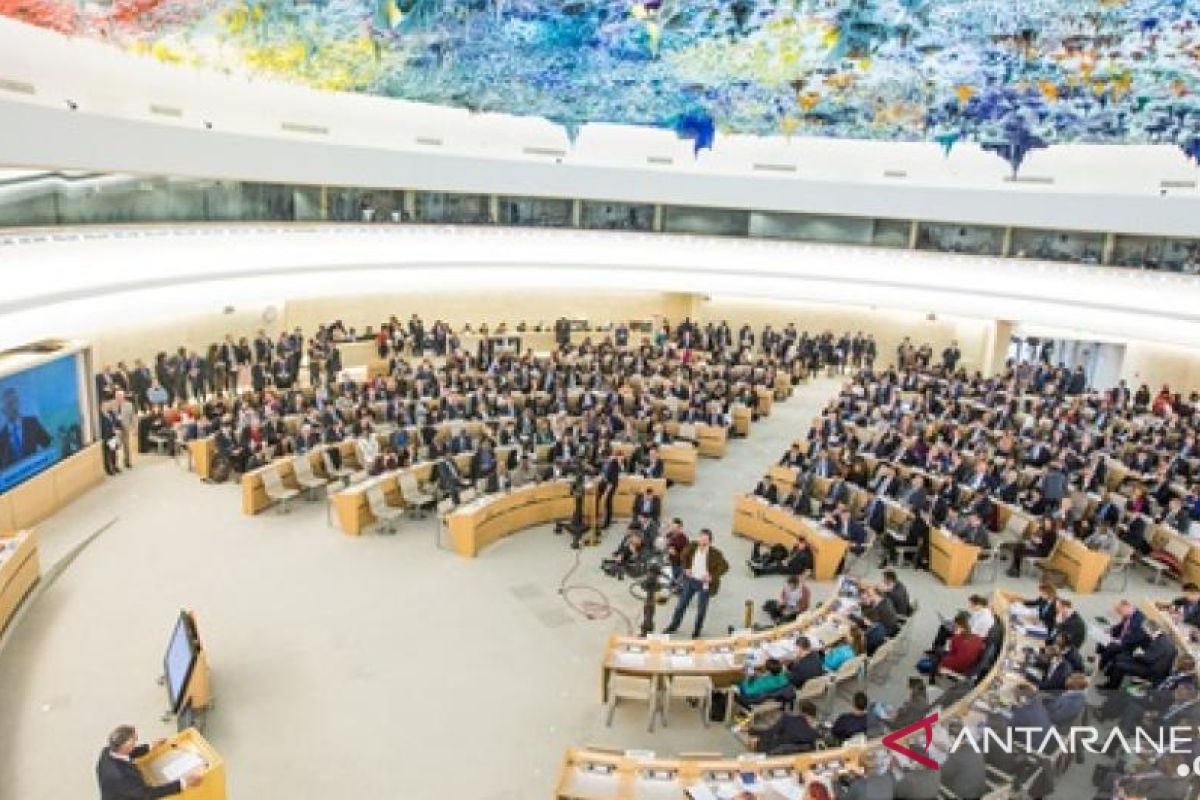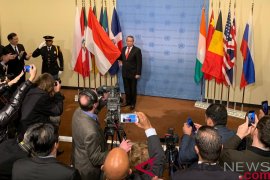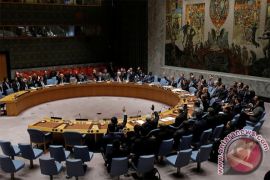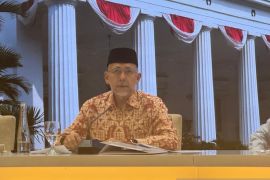Indonesia was recently elected as a non-permanent member of the United Nations Security Council (UNSC) and officially holds the position for the 2019-2020 period.
Currently, Indonesia is on the move to expand its role at the United Nations. The Indonesian government has announced the candidacy of Indonesia as a member of the United Nations Human Rights Council (UNHRC) for the 2020-2022 period.
Indonesian Minister of Foreign Affairs Retno Marsudi, in her annual press statement in early January this year, stated that Indonesia will run for membership of the leading UN human rights body based in Geneva, Switzerland.
To this end, the Indonesian government must prepare to fight in the election of UNHRC members to be held in November 2019.
Campaigning
The Indonesian government has begun preparations to campaign for Indonesia's candidacy at the UNHRC to be held at the 74th UN General Assembly in New York in November 2019.
"We have begun preparations for our campaign for the UNHRC membership this year," Febrian Alphyanto Ruddyard, Director General for Multilateral Cooperation of the Ministry of Foreign Affairs, stated.
Indonesia's campaign for the UNHRC member candidacy is themed "A True Partner for Democracy, Development and Social Justice." Jakarta will start the first campaign at the UNHRC meeting scheduled in the end of February, in addition to also holding Indonesia`s exhibition on human rights in June this year in Geneva, Switzerland.
"The campaign in Geneva will be carried out massively and with full force. I think, by entering the UN Human Rights Council, it will emphasize Indonesia`s commitment in efforts to support and promote human rights," Ruddyard noted.
In Geneva, the Indonesian government will capitalize on various opportunities to campaign for Indonesia's candidacy, one of which is at the 40th Session of the UNHRC to be attended by Foreign Minister Marsudi, who will discuss Indonesia`s commitment in supporting universal human rights values.
Director for Human Rights and Humanitarian Affairs of the Ministry of Foreign Affairs Achsanul Habib remarked that Foreign Minister Marsudi will convey Indonesia`s ideas, position, and achievements in the area of promotion of human rights at the UNHRC session.
Furthermore, Minister Marsudi will spend time on the sidelines of the session to hold several bilateral meetings with her foreign counterparts to garner support for Indonesia's candidacy for membership of the UNHRC.
"We will also gather more support, both through bilateral and multilateral meetings. We will present our vision and mission for the UNHRC membership, and of course, we expect some solid support from friendly countries," Habib noted.
Moreover, through bilateral relations, Indonesia will also seek support through various multilateral organizations and forums, including the Organization of Islamic Cooperation (OIC).
Minister Marsudi, on the first and second of March, will attend the 46th OIC Ministerial Conference to be held in Abu Dhabi where she will also strive to gather support from OIC member states.
In addition, all Indonesian representatives abroad will continue to campaign and mobilize support in each country for the candidacy of Indonesia as a UNHRC member.
Chances
Not only campaigning, but the government also needs to calculate Indonesia's chances of winning the race towards the membership of the UNHRC.
"Of course, we are optimistic about this candidacy since Indonesia has some good modalities on the issue of human rights. Competitor countries certainly have their own way to mobilize support," Director of Human Rights and Humanitarian Affairs Habib stated.
To win a seat on the UNHRC for the 2020-2022 period, Indonesia must compete with five other countries in the Asia-Pacific region: China, Japan, South Korea, Iran, and the Marshall Islands.
Habib affirmed that Indonesia has "traditional friend" countries that will potentially support its position in the international arena, including towards membership of the Human Rights Council, such as the 57 OIC countries and nine fellow ASEAN member countries.
"We will also gather support from groups of countries in America and Europe. They have had a pretty good view of Indonesia's human rights. We can also approach Australia for support," he noted.
However, there is also concern over negative issues regarding the condition of human rights in Indonesia that can hinder its chances of gaining membership at the UNHRC.
Responding to such concern, Director General for Multilateral Affairs of the Ministry of Foreign Affairs Febrian Ruddyard believes that Indonesia has, in fact, demonstrated its commitment to being transparent regarding its domestic human rights condition by becoming a member of the UNHRC.
"By willing to become a member of the Human Rights Council, Indonesia shows its confidence to uphold human rights. A seat at the UN Human Rights Council will encourage greater empowerment of domestic mechanisms in dealing with human rights issues," he remarked.
Track record
Indonesia, in fact, has a fairly good track record and reputation related to its international role and position in the efforts to promote human rights. This was proven by Indonesia's experience of holding a seat on the human rights body for the periods of 2006-2007, 2007-2010, 2011-2014, and 2015-2017.
In competing with other Asia-Pacific countries for the UNHRC seat, Indonesia has a positive human rights record. For instance, Indonesia is recognized as one of the first countries in the Asia-Pacific region to have a national commission for the protection of human rights. Indonesia's National Commission on Human Rights (Komnas HAM) was formed in 1993.
"Indonesia is indeed one of the benchmarks in the Asia-Pacific in an effort to promote human rights values. Indonesia is often called on to be a representative of Asia-Pacific countries and developing countries as a role model of a country, with a good human rights track record," Habib noted.
In addition, Indonesia has been known for its track record of humanitarian diplomacy conducted to overcome conflicts and humanitarian crises in several countries, such as Myanmar and Palestine. This is an additional point that makes Indonesia eligible to be re-elected as a member of the UNHRC.
"Indonesia also has some other important international roles in the field of human rights, such as initiating the establishment of the ASEAN Intergovernmental Commission on Human Rights (AICHR) and an independent human rights body in the OIC. Indonesia has also been passionate about promoting democracy by holding the Bali Democracy Forum every year," Habib pointed out.
Hence, he is optimistic about Indonesia`s chances of being reelected as a member of the UNHRC for the 2020-2022 period, given its good track record in human rights. The Indonesian government also expects as many votes as possible from friendly countries on the election day in November 2019.
In accordance with the theme promoted by Indonesia for its campaign at the UNHRC candidacy, "A True Partners for Democracy, Development, and Social Justice," Indonesia is ready to cooperate with other countries to promote and protect human rights values.
Reporter: Yuni Arisandy Sinaga
Editor: Sri Haryati
Copyright © ANTARA 2019












